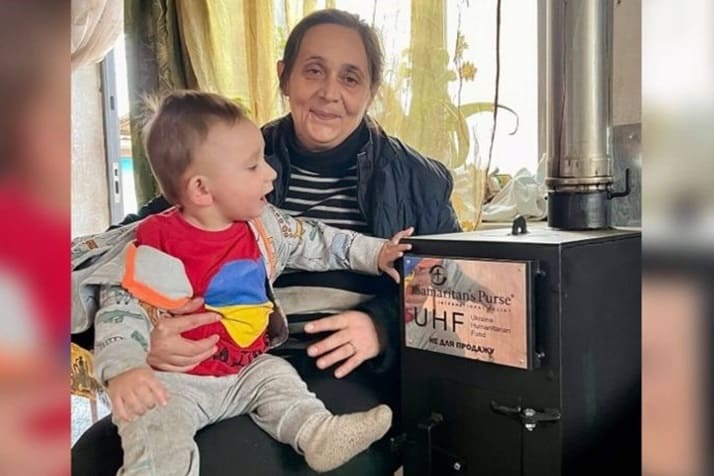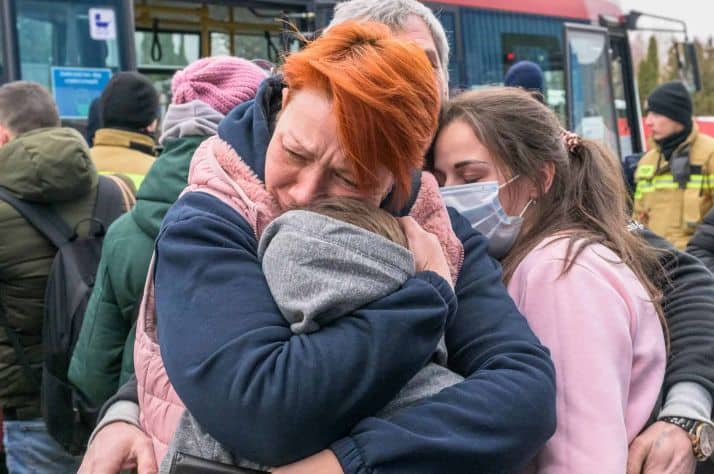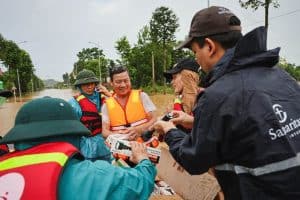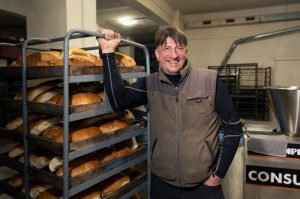Samaritan's Purse and our partners are providing aid to women living in conflict areas to remind them that God has not forgotten them.
Warmth in winter is a basic necessity that eludes many women of Ukraine as they fight for the lives of their children and their communities. Together, they face bitter cold. Some may live in homes damaged by war. Others may have to spend long hours underground in bomb shelters.
In response, Samaritan’s Purse is supplying wood-burning stoves and fuel in order to provide hope to those weary ones residing near the frontlines.
Lera*, who is now nearly 50 years old, lives in the same village in eastern Ukraine where she was born and raised. Invading troops occupied her hometown nearly two years ago, destroying the local power plants in their path. This left her village without electricity or water. Even the shelves in stores stood empty.
“We are extremely grateful. This stove helps us a lot.”
With the help of a neighbor, Lera secured some wheat from a harvest that took place before the occupation. She ground the precious heads of grain into flour and hid it for gradual use. While few other staples could be found, she was still able to bake bread for herself and her community. This proved to be especially important sustenance for her first child, whom she carried in her womb as the war raged on.
Ukrainian troops liberated Lera’s village later in 2022, but the sense of victory was tempered with the threat of constant artillery fire. The shelling badly damaged her house, including her windows, ceiling, and chimney. In this half-destroyed dwelling, she gave birth to her son, Andrii*.
When Samaritan’s Purse delivered a wood stove and cords of wood to the new family, Lera said, “We came back to life.” Now a toddler, little Andrii can play comfortably inside.
“We are extremely grateful,” she said. “This stove helps us a lot.”
The newfound warmth is providing a sense of security and stability where it is otherwise in short supply.
Preventing the Gathering of Firewood
In another region along the frontlines sits a cluster of four villages. Once 1,300 people strong, today the population is reduced to around 400. Olga* and the other women who remain in this resilient community grew up together, helping their fathers in the fields and with the farm animals. Their lives were full of work, family, and the enjoyment of the beautiful nature around them—that is, until war came to their doorstep.
Now, they cannot go into the nearby forests in search of firewood because the risk of mines is too great. Unexploded ordnance threatens to dismember any passerby.
Olga must now send her cows out to graze in small groups. Some stay back; some go out. That way, if some cows do not return, her livelihood is not entirely lost.
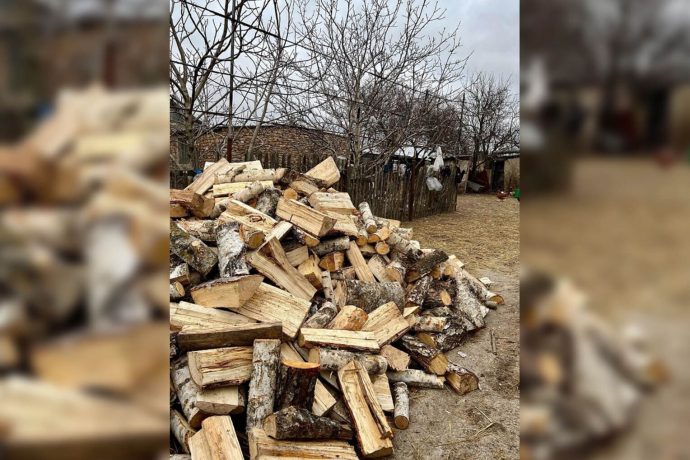
SAMARITAN’S PURSE HAS DELIVERED OVER 17,500 CORDS OF WOOD TO DESPERATE UKRAINIANS SINCE THE START OF THE WAR.
Her family lives in and out of bomb shelters, and she looks for ways to occupy her children with games, hobbies, or online school as the war drags on. Despite these challenges, Olga says her children keep her going.
Each day, the members of Olga’s community grow closer together, checking in on each other after a shelling or making sure their elderly neighbors receive the food and water they need. They are desperate for the war to be over and for the sounds of conflict in the distance to grow quiet, but until then, they push on, together.
Closing and Opening Eyes
It is for brave women like Lera and Olga that Samaritan’s Purse partners travel deep into conflict zones with stoves, wood, and the hope found only in Jesus Christ.
“Without God, not one of our trips would have taken place,” said Kateryna*, one of our partners. “Six times we returned home only by God’s grace.”
She said, “We went to places where the [opposing military] could not help but see us, but God closed their eyes.”
At the same time, God is opening the eyes of desperate Ukrainians to His love during their time of need. Since the start of the war, Samaritan’s Purse has provided over 11,900 stoves and 17,500 cords of wood to Ukrainians. Please pray that they would find peace with God amid their suffering and that the conflict would end soon.


